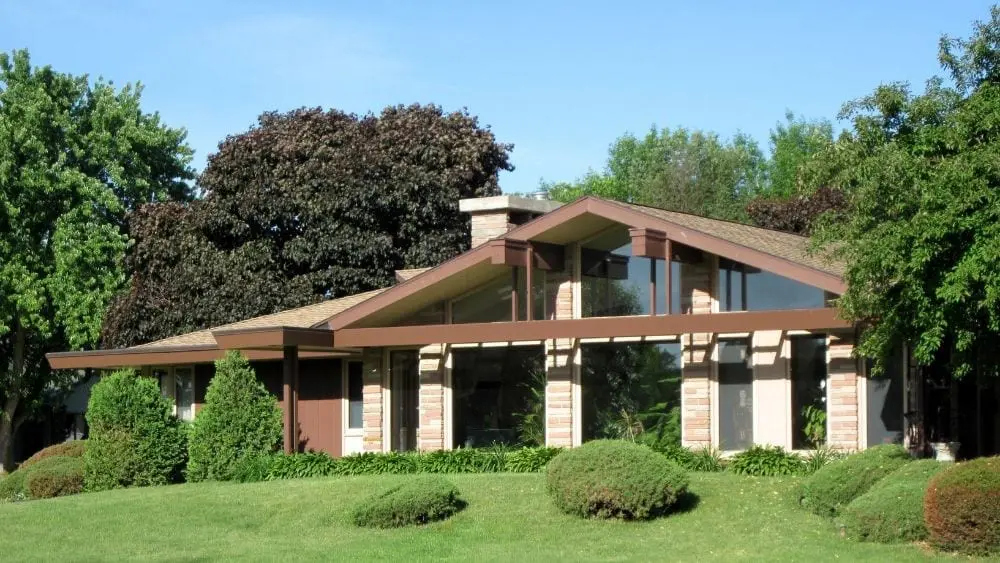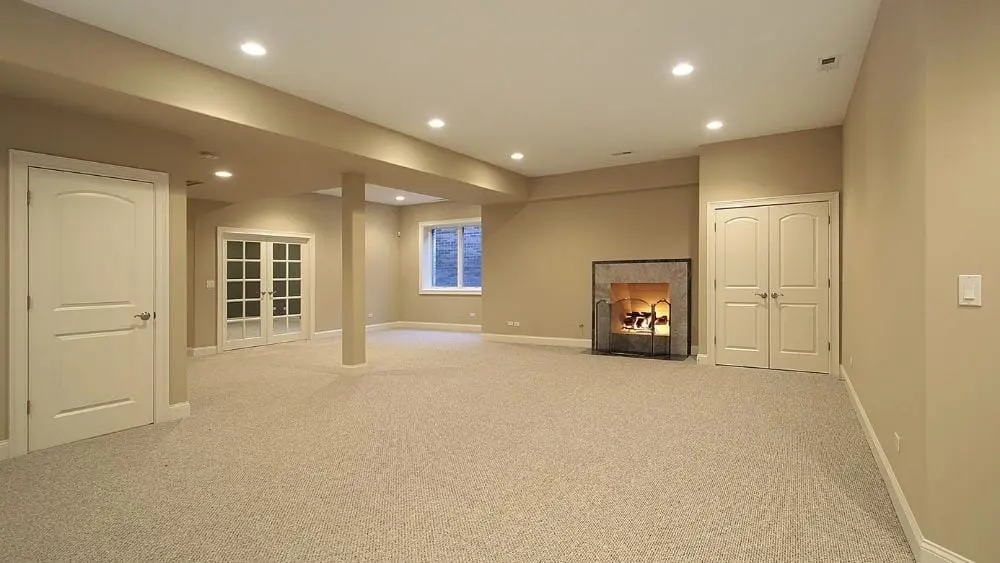
North Carolina is known not only for its picturesque landscapes, but also for its friendly people, mild climate, and booming economic opportunities. It’s no wonder why more and more people (individuals and families alike) choose to make the Tar Heel State their home year after year.
For many new homebuyers, the process to find a home that meets their specifications can be tricky. If you’re looking for certain layout features, unique design elements, or specialty fixtures and finishes, then a custom-built new home may be a suitable option for you. The process might take a bit longer, but you can have peace of mind knowing that the finished product will perfectly meet your needs and preferences.
The first step to building your dream home in North Carolina is taking the time to research the step-by-step guide to the homebuilding process. By learning the basic steps, you’ll be better prepared for what to expect along the way.
Next, homeowners should create a preliminary budget for their new home project. It’s a good idea to stay on the modest side of things to start, then prepare for unexpected costs to pop up along the way. Using the U.S. average costs to build a home, new homeowners have a starting point to begin writing their basic budget and prioritizing certain features they want to be built in the design stage.
It’s important to remember that every state has its own costs and considerations associated with building new homes. In North Carolina, these are the items that you need to be aware of.
Climate Considerations
The mountainous region of the state tends to be generally cooler and experiences greater rainfall than the subtropical climate in the Southeastern region. However, the state typically experiences all four seasons and the climate is considered to be fairly mild.
The most frequently-occurring natural disasters in North Carolina are hurricanes or tropical storms, thunderstorms, winter storms, floods, and tornadoes. Homeowners should research their homesites and plan accordingly for any potential extreme weather events. Homeowners should purchase a robust home insurance policy that protects against damage by natural disasters.
In flood zones, basements are not advisable. Homeowners might consider the irrigation plan for their property if the area is prone to severe storms. Extra insulation along with well-sealed siding and ductwork will be beneficial in the case of severe thunderstorms and harsh winters to keep cold air and excess moisture out. In certain areas that may be at a greater risk of hurricane damage, homeowners may opt for storm windows and incorporate shelter areas in the design of the home.
Expected Cost

According to data sourced by Home Advisor, the average cost to build a new house in North Carolina is $385,000. The actual cost depends on location, size, and design of the home, as well as labor, permits, materials, utilities, and more. The average cost may be between $160 and $230 per square foot, which is slightly higher than the U.S. average.
Construction Timeline
Here is a step-by-step guide for building your new house in North Carolina.
Buy Land
According to Acre Trader, an acre of land in North Carolina cost about $4,180 in 2019. That amount has increased with rising prices across the nation. The cost can vary significantly by size, location, and proximity to the nearest city.
Permits and Paperwork
In North Carolina, residents are required to obtain residential building permits before beginning construction. There are hefty fines for failure to obtain necessary permits, so it’s best to research ahead of time and get permits submitted early to avoid any penalties or construction delays.
Typically, if you hire a general contractor, they should be able to manage any permit applications for you. Since these applications typically require copies of the blueprints, building plans, and contractor licenses, it’s often more easily handled by the contractor and the city or county building department.
Building permits, just like electrical, grading, plumbing, and mechanical permits, are issued by local municipalities in North Carolina. Homeowners should contact their local building or development office to find out more about necessary legal permits that may be required for their home project.
Additionally, if your area is considered a floodplain, you will need to get an elevation certificate from FEMA before you may obtain a permit. This is to ensure that your building plans meet the criteria for the National Flood Insurance Plan. Be sure to check with your local building department to find out if your lot is in a flood zone and if your home requires any additional approvals or permits.
Site Prep
After the land is purchased, the next big expense is preparing the land for construction. The lot must be cleared, the soil tested, and the terrain leveled. The cost to prepare a lot for construction in North Carolina is similar to the U.S. average cost of home site preparation.
Next, the land needs to be connected to power, water, and sewer lines. If the lot is in the city, the process may be a bit easier to hook up with the city infrastructure. In more rural areas, homeowners might face some challenges in finding power companies that will run a line out to the homesite. Consult your builder for more information on what is available in your area.
Foundation

In North Carolina, slab and crawlspace foundations are often the most popular choice. Basements tend to be less common due to the soil composition and saturation.
Areas that tend to have damp soil may not be well-suited for a basement, similar to lots with heavy clay soil that can add pressure to underground structures when shifting over time. The cost to build a slab or crawlspace foundation in North Carolina is similar to the U.S. average cost for a home foundation.
Framing
Once the foundation is set, the frame is the next major piece of the home building process. The house frame is often the most expensive part and may fluctuate in cost due to changes in material prices and labor. The cost to frame a new home in North Carolina is in line with the U.S. average costs.
Roof
Once the framing is in place and the siding is added, then the roof can be built on the new home. The cost to build a roof is dependent upon the size, design, and choice of material. A standard asphalt shingle will be the most affordable option while heavier and more fragile materials will typically cost more. The cost to build a roof on a new home in North Carolina is usually between $6,000 and $12,000, which is in line with the U.S. average cost for a new roof.
Labor
Most new homebuyers choose to hire a general contractor to manage their new home project. General contractors can oversee the day-to-day operations, hire subcontractors, and ensure that your home construction is completed within budget and schedule.
While some homeowners may be skilled in home construction, it is often advisable to hire an outside contractor for your own home project, especially if you plan to continue working a full-time job during the construction. As a bonus, you’ll be able to relax and enjoy the fun of the home construction project as well.
General contractors typically charge between 15 and 20 percent of the overall cost of the project. This amount is usually paid out in increments over time to line up with the phases of the home project.
Major Systems
After the siding is up and the roof is in place, the next step is to make the home truly functional with running water and electrical systems. Homeowners will need to hire a licensed professional electrician to wire the home safely. The cost of wiring the home will depend upon the number of outlets, light fixtures, and appliance needs in the home. Next, homebuyers will need to hire a professional plumber to install rough-in plumbing throughout the home. The cost will again depend upon the size and design of the home as well as the number of fixtures such as sinks, toilets, and showers.
Additionally, installing a high-quality HVAC system and performing regular maintenance checks are critical to maintaining the highest possible efficiency in the home. The cost to install a new HVAC system in North Carolina depends upon the size and complexity of the home design, but may cost between $4,000 and $10,000, which is similar to the U.S. average cost to install an HVAC.
Finishing Features and Appliance Installation

After the bare bones of the house are completed, the best is still yet to come! Finishing features such as custom cabinetry, flooring options, light fixtures, and landscaping options add the personalized touch that makes your new home fit your own personal lifestyle. Don’t forget to choose your appliances early so that they can be delivered and installed prior to your move-in date, making your home completely ready to be lived in!
Helpful Tips for Building in North Carolina
Finally, below are a few tips and tricks for building your dream North Carolina home.
Closing Cost Incentives
Often, state governments and local municipalities offer various financial incentives for new and repeat homebuyers. Connect with your local building or residential development office to find out more about down payment and closing costs assistance. Doing so may save you thousands of dollars that you can otherwise spend on other aspects of your new home.
General Timeline
In general, it takes approximately five to seven months to build a house in North Carolina from start to finish. This lines up with the average for all U.S. custom home building projects.
Build Your North Carolina Home

Gorgeous countryside views and scenic mountain ranges await you in the beautiful state of North Carolina. Take your time to incorporate your favorite design ideas into your dream home and get ready for the adventure of a lifetime.

Melanie Theriault is a writer, counselor, and lifelong learner. She holds a B.A. in Sociology from Southwestern University, where she discovered her passion for fostering human connection through storytelling.
 How to Build a House in Kentucky
How to Build a House in Kentucky